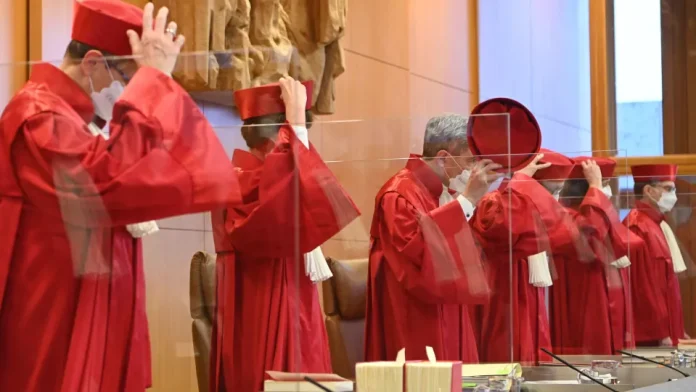The German government and the centre-right opposition have struck a deal to shield the Constitutional Court from blockades and takeovers amid fears that national-oriented parties may try to undermine the rule of law, according to Euractiv.
Concerns that national-oriented forces in Germany could undermine the rule of law prompted the German government to take action, Justice Minister Marco Buschmann reported on Tuesday, 23 July.
We have learned from [our neighbours in Eastern Europe], (…) that, if a majority is not prepared to accept [court] decisions, a court is vulnerable to attacks if legislators can simply change how it works.
Konstantin von Notz, a leading Green lawmaker, noted that “in Germany as well, autocratic regimes, far-right extremists, and other democracy despisers attack our democracy every day, systematically.” Although Buschmann and current lawmakers avoid naming it, the AfD party is probably a problem for German authorities because it still ranks high in opinion polls.
The party posted its highest ever national result in June’s EU elections and is leading in the three East German states where regional elections will be held in autumn. To protect Germany’s highest court, the Bundesverfassungsgericht, from such interference, the coalition government of the centre-left SPD, the liberal FDP, and the Greens, as well as the largest opposition group, the conservative CDU/CSU, agreed to add the courts’ current procedural rules to Germany’s constitution.
This means that a two-thirds majority of lawmakers, rather than a simple majority, would be required to change the court’s status, its size, or the tenure of judges. Moreover, parties also plan to protect the court from attempts to block it by refusing to greenlight judges.
Previously, this was possible for parties with just over a third of seats in one of Germany’s two parliamentary chambers – the Bundestag and the Bundesrat – each of which appoints half of the Bundesverfassungsgericht judges. The new measures would allow each chamber to transfer to the other the right to appoint judges after a three-month period to select an appointee has expired.
